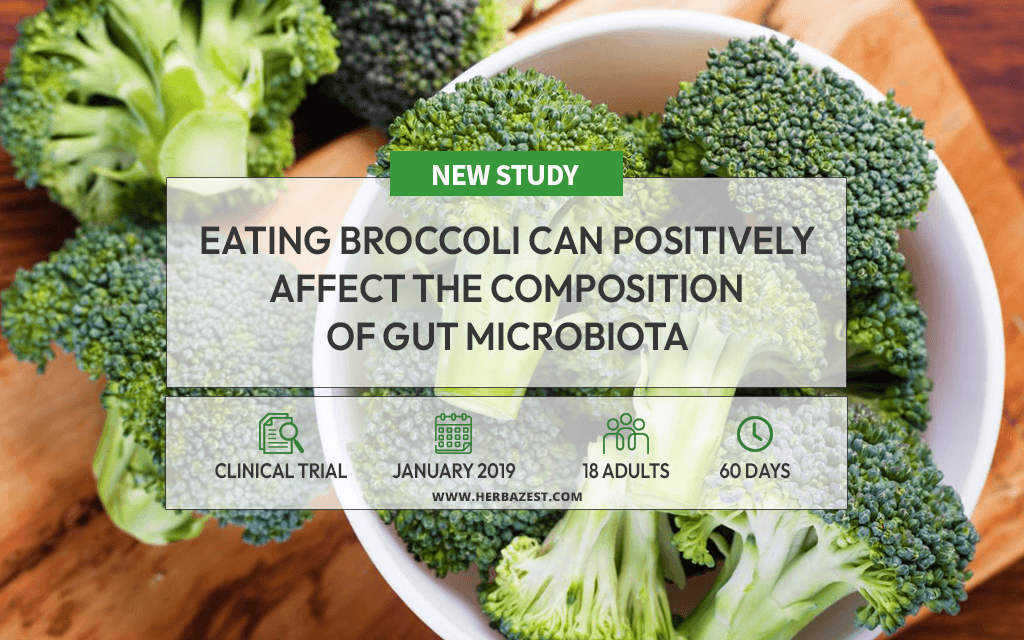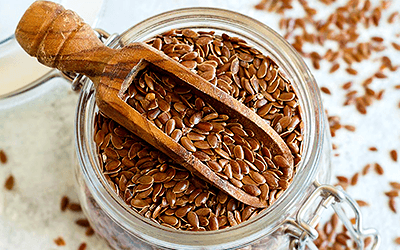Gut microbiota, or gut flora, is a collection of microorganisms that live within the human gastrointestinal tract. While its exact composition varies between people, gut flora plays important roles in the body, including aiding digestion, strengthening immunity, and supporting mental health.1
In fact, a number of studies have linked disruptions in gut bacteria to various diseases, including obesity, diabetes, and depression. Since diet has been found to affect the flora and potentially contribute to those disruptions, it is important to further study the effects various foods in our diet have on the guts.
As one of the most common cruciferous vegetables, broccoli is a well-known prebiotic food thanks to its richness in fiber and glucosinolates, both of which are fuel for “good” gut bacteria.2 This study was set to take a closer look at the extent to which broccoli can affect the composition of gut microbiota.
The Study
This was a controlled-feeding, randomized, crossover study conducted at the Agricultural Research Service's location in Beltsville, Maryland, a research agency for the United States Department of Agriculture (USDA).
The 18 healthy, adult participants, who were asked to refrain from eating cruciferous vegetables for three weeks prior to the study, were randomly assigned to two groups. The groups went through an 18-day broccoli/control period, a 24-day washout period, and an 18-day control/broccoli period.
The broccoli group was given two meals per day with a total of 200 g of cooked broccoli and 20 g of raw daikon radish. The control group received traditional American meals that did not contain cruciferous vegetables.
Fecal samples were collected and analyzed before the beginning of the study and then at the completion of each of the phases.
The Results
Researchers in this study have confirmed that broccoli consumption can affect the composition of gastrointestinal microbiota. While none of the species were extinguished on broccoli treatment, their ratios did change. Broccoli increased the abundance of one of the main bacteria in the gut that belong to the genus Bacteroides, which play an important role in obtaining nutrients from food in the digestive tract.
Interestingly, participants with a body mass index (BMI) higher than 26 kg/m2 have experienced the strongest effects on their gut flora.
What Does this Mean?
This study is one of the many that are necessary for an improved understanding of the effects food, like broccoli, exerts on human gastrointestinal flora. It builds on previous evidence that cruciferous vegetables are rich in prebiotic compounds that serve as food for good bacteria and stresses the importance of the relationship between broccoli and gut health.
As science explores safe ways, including dietary alterations, to naturally modify gut microbiota's composition and function for disease prevention or treatment, knowledge of the roles individual foods play in the process is of the essence.
Other prebiotic foods include garlic, onions, oats, and cacao.
Sources
- The Journal of Nutritional Biochemistry, Broccoli consumption affects the human gastrointestinal microbiota, 2019
Footnotes:
- Current Opinion in Infectious Diseases. (2015). The Intestinal Microbiome and Health. Retrieved October 17, 2019 from https://www.ncbi.nlm.nih.gov/pmc/articles/PMC4643846/
- The Journal of Nutrition. (2009). Human Gut Bacterial Communities Are Altered by Addition of Cruciferous vegetables to a Controlled Fruit- and vegetable-Free Diet. Retrieved October 17, 2019 from https://www.ncbi.nlm.nih.gov/pmc/articles/PMC2728691/




